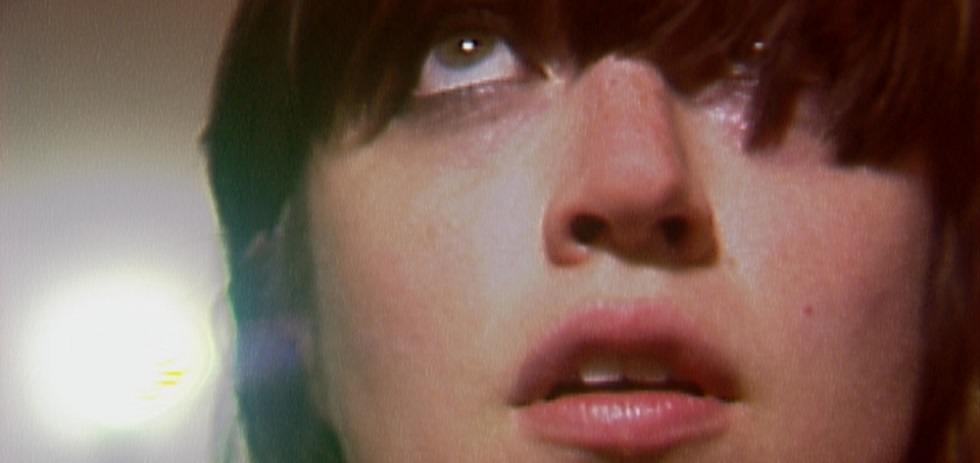It takes roughly twenty of Stinking Heaven‘s scant seventy-minute runtime until the logical opening scene arrives, though by then it’s clear that conventional narrative logic isn’t much of a concern for writer/director Nathan Silver. Like his previous three features1 – 2012’s Exit Elena, 2013’s Soft in the Head and 2014’s Uncertain Terms – his latest is a slice-of-life study of a group and its cryptic dynamic, in which the claustrophobic observation we’re presented with is just the tip of an iceberg that remains tantalisingly out of full view.
The aforementioned scene introduces us to the rules of the commune/halfway-home-ish abode at the film’s centre, but the film’s actual opening scene is a lot more fitting for the disorienting tone that Silver’s after. On a windy and overcast day, two young women take bong hits by a riverside, before a sharp cut shows them lying asleep awkwardly atop one another, an image that economically suggests a romantic history without spelling anything out. A title card announces that the setting is Passaic, New Jersey in 1990, which turns out to be a puckish joke, given the film’s delineation of time and geography.
Stinking Heaven is technically an ensemble film, but Silver is after something more abstract and intriguing than prosaically criss-crossing between its characters’ dramas. He inevitably draws comparison to John Cassavetes and Altman for his brand of controlled chaos,2 but specifically the former for the ways that behaviour is isolated from psychology and made the chief (or rather, only) element of the mise-en-scene. It’s not meant as pejorative when I say that the film’s characters have largely blurred into one in my mind since seeing the film, since Silver is less interested in one particular person than the sense that this surrogate family of misfits operates as one single, mutually-dependent organism. The final shot is of the house’s exterior, as the inhabitants’ muffled chanting can be heard from inside, the sound seemingly emanating from one single source.
Formally, Stinking Heaven is the most striking of Silver’s last four films, shot on Betacam video that evocatively suggests both home movies and direct-to-video 80’s horror cheapies, and Silver gets a lot of mileage from the ghosting effect of his images paired with Paul Grimstad’s drowsy synth score. Like a number of recent films that use low-res video as a period signifier (Pablo Larrain’s No and Andrew Bujalski’s Computer Chess among them), it’s been crafted to resemble something more akin to found footage than a feature film, though there’s a narrative motive for this decision, given that it’s the same format used by the commune’s members to record the re-enactments of their past trauma, performed therapeutically as a path to recovery. However wilfully artless the film appears on the surface, it’s filled with indelibly abrasive images that find pitch-black absurdist humour in moments of trauma, most notably the sight of a character scoffing down the tape containing recordings of a recently deceased loved one, as the house’s members surround her, jamming out songs on acoustic guitars.
The aforementioned departure is Stinking Heaven‘s major dramatic turning point, and it ends on a note that suggests this makeshift family is about to finally come irrevocably undone. Befitting its contradictory title, the film can be as trying as it is absorbing, with its group therapy scenes becoming particularly tiresome. But even in its more grating, histrionic moments, it’s bracing to be in the hands of a filmmaker with complete control over the level of discombobulation he’s after.

